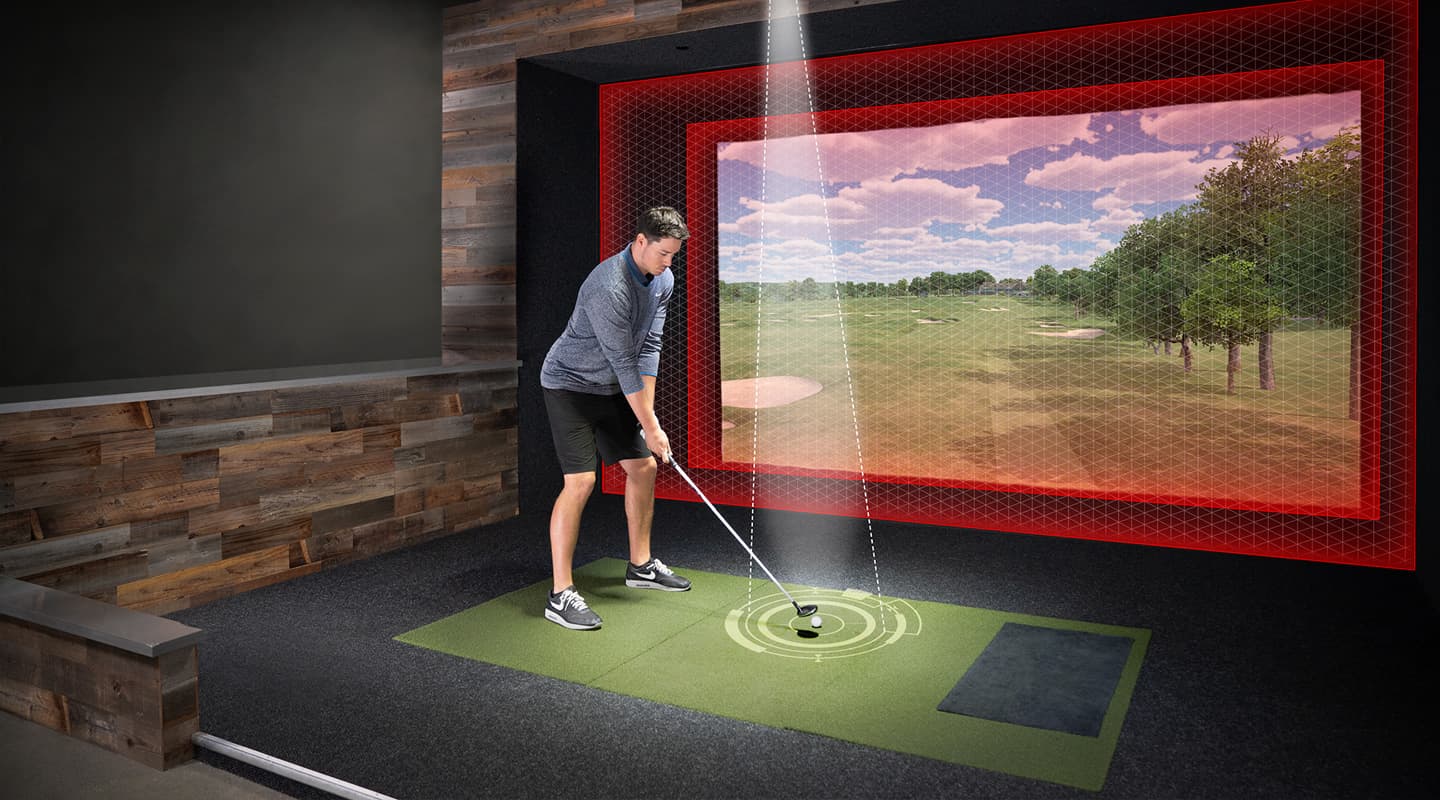
Taking a Big Swing at Golf Simulation
Big Swing Golf pioneered indoor golf centres. What technology is involved and what do you get for your A$85k?
Text:/ Christopher Holder
Back in 2014 Drummond Golf couldn’t help but notice that golf club memberships were on a downward trend. Given its business is all about selling golf gear and clobber, it looked into ways it might assist in boosting numbers.
After conducting some research it resolved to open an indoor golf test site. The theory was to attract real-life golfers via the virtual alternative. Thus Big Swing Golf was born.
In 2015, it inked an exclusive partnership deal with the US manufacturer of golf sim systems, Full Swing Golf. Now, there are 20 Big Swing Golf franchises up and down the east coast of Australia.
It didn’t take Big Swing Golf long to realise that the golf sim experience was less suited to super-serious participants and more suited to a hit ’n’ giggle golfing equivalent of a Strike bowling alley. No need to bring your own kit, just turn up and have some fun with friends and perhaps a few beers along the way to grease the wheels.
IN FULL SWING
Not all golf sims are created equal. The Full Swing Golf simulators have a technology edge, combining a high-speed camera for club head metrics with 3D infrared tracking of the ball’s flight.
A lot is expected of the golf sim computer: it takes all the ball-tracking information from the mat and ball flight then instantaneously renders flight path information from the spot where the ball hits the screen. Information about the spin and rotation of the ball will also affect the path of the ball as it lands. As you can see, there’s quite a bit more to it than Wii Golf. Full Swing’s systems are favoured by some of the biggest names in golf, including Tiger Woods and Jason Day.
Yes, it’s possible to buy a Big Swing Golf system for your home. Yes. It’s quite an investment, starting from around A$85,000 up to around A$120,000.
It’s a lot of dough and it helps to have won a few tour events to afford such a system, or, you’re one of many during the lockdown who is happy to spend money you may otherwise have thrown at a week in Aspen at tarting up the rumpus room, garage, home cinema, or ‘man cave’ to incorporate high quality golf simulation.
Big Swing Golf CEO, Rob Oppedisano, reckons they’ve seen a five-fold increase in enquiries during the pandemic.
Golf simulators are now big business.
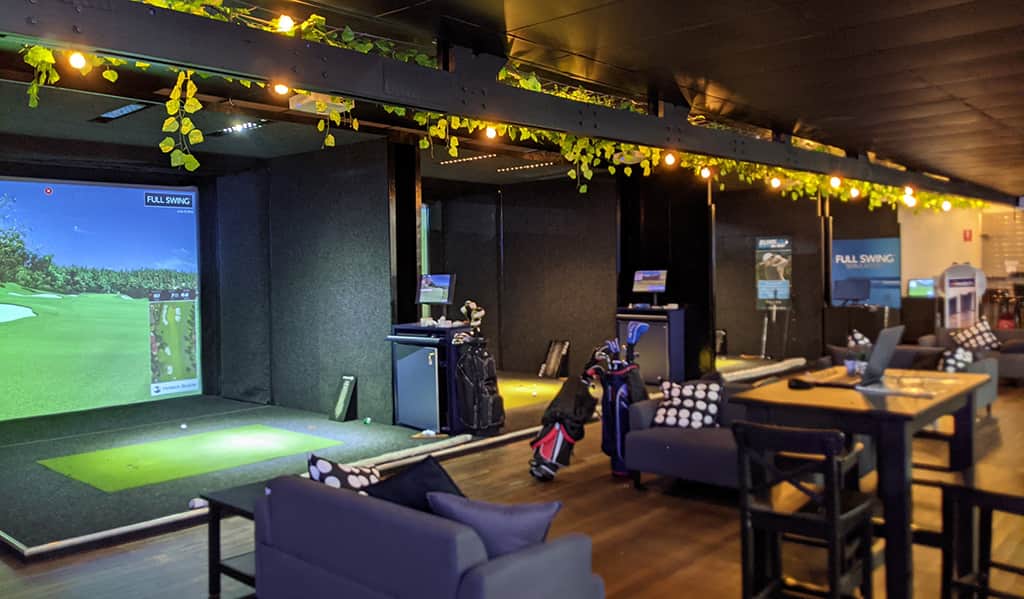
PROJECTION SELECTION
Big Swing Golf trades off being the best, the most realistic golf simulation experience going around, which requires staying ahead of the game with its technology. It relies on Panasonic PT-VMZ50 WUXGA laser projection for its display requirements.
“We needed to find a projector that was just as happy projecting in a 4:3 aspect ratio as it was a 16:9 aspect ratio,” explains CEO Rob Oppedisano. “It’s getting harder to find a projector that doesn’t impose some image loss when you do that.”
This is important to Big Swing Golf’s residential installations. If the space is a little cramped then 4:3 will be preferred.
“In those cases, you need to find a projector that has the same image quality: same brightness and doesn’t lose a lot of resolution along the way.”
Brightness, as Rob mentioned, is another key aspect when there’s not as much control over ambient light. “The Panasonic units are 5000 lumens, which is great, and we wouldn’t want to compromise on that.”
The laser light source is a powerful development for Big Swing Golf, especially in its franchised golf simulation lounges, where the projectors can be running 18 hours a day, seven days a week. “Previously, we were swapping out lamps every year and it was bad for business — tedious, and sometimes they’d go wrong at the worst possible time.”
Big Swing Golf, as you’d expect, standardise its technology package such that there’s no need for franchisees to be concerned about what’s best and how it installs. Ditto, residential clients: the package is a finely-tuned system and not some roll-your-own, see-how-it-goes mish-mash of hardware and software.
“It takes a week to install a simulator,” according to Rob Oppedisano. A week!
“There are so many parts. There are all of the infra-red tracks that need to be laid in. All of the cables need to be carefully connected. The booth itself needs to be constructed. All of the carpet needs to be laid. All of the the end-capping needs to be placed on and installed. Everything needs to be calibrated. Everything needs to be tidied and cleaned. It’s just a long process. When we put one of these into somebody’s home, they think, ‘Oh yeah, you guys will have this done by the end of the day’. And it’s not until they watch our guys working for the period of a week do they realise, ‘Wow, there’s quite a bit to this’. And it’s true. I mean, that’s why it’s the most advanced simulator on the market. If it was a simple machine, then it would make our lives a lot easier, but it is a complicated machine. But the main thing is that it provides superb results.”
“”
the level of interest has increased massively over the last two years, and I don’t think that’s going to abate
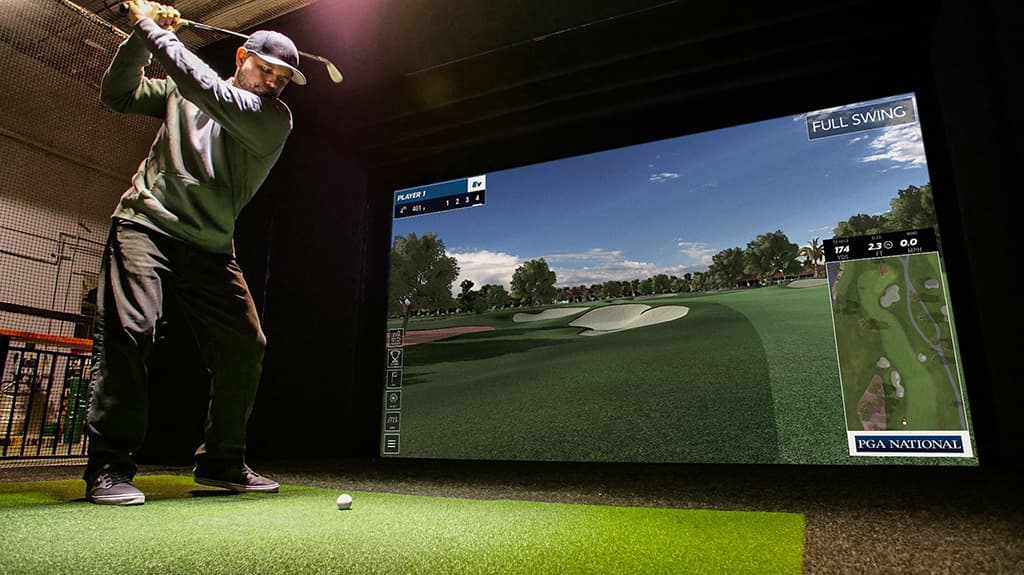
MARKET FOR INDOOR GOLF
“The market for indoor golf in Australia isn’t mature yet and we’re a few years behind the US,” observes Rob Oppedisano. “Customers don’t yet understand exactly what they’re getting for their money. They understand why a German SUV is $100,000 and a Suzuki is $20,000 but they’re not yet sure about the performance differences of golf sims. That said, the level of interest has increased massively over the last two years, and I don’t think that’s going to abate. Now that people know indoor golf is a viable addition to their home like a pool, gym, tennis court or home cinema, they’re designing them into new builds and renovations. Plus they can use them for live exercise, such as a Pelaton bike system. It’s a multi-purpose tools now.”
Not so incidentally, the screen arrangement of a Big Swing Golf system sees a front, perforated screen combined with a heavier screen behind it. The first soaks up the worst of the ball impact and the back screen takes care of the rest. It’s not an ideal surface for home cinema but customers are often using a retractable cinema screen come time for movie night.
‘What’s the minimum ceiling height?’ you ask. 2.6m according to Rob Oppedisano. Or 2.75m if you can.
And what about installing a golf sim as a DIY project? As you’d expect, Rob Oppedisano is dubious. But even for tech-savvy individuals there’s plenty of due diligence required when selecting the technology platform. Sounds like if you have a cool $85k then the choice is simple. Otherwise, don’t be too hasty to mothball the Nintendo nunchuk.
Panasonic Australia: business.panasonic.com.au
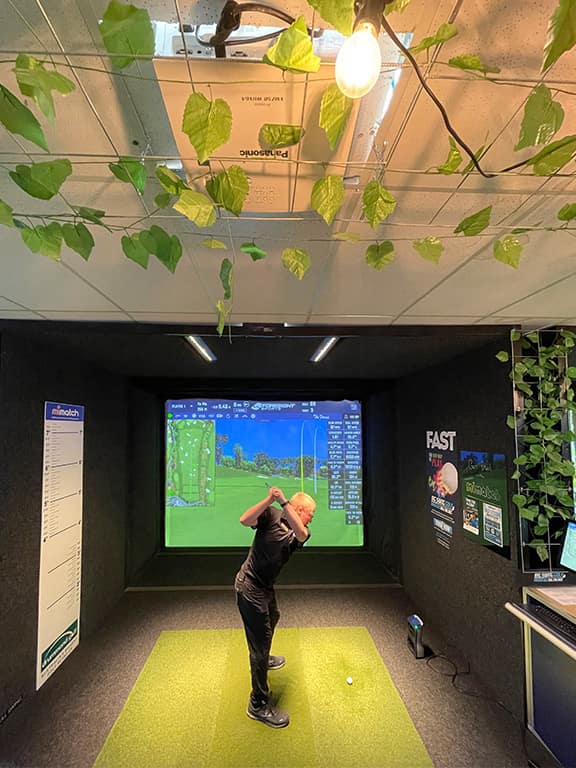



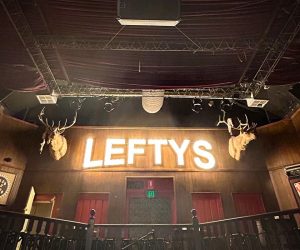
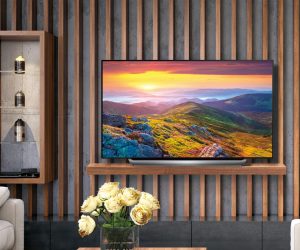






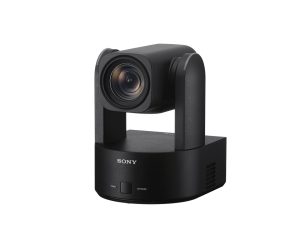



RESPONSES